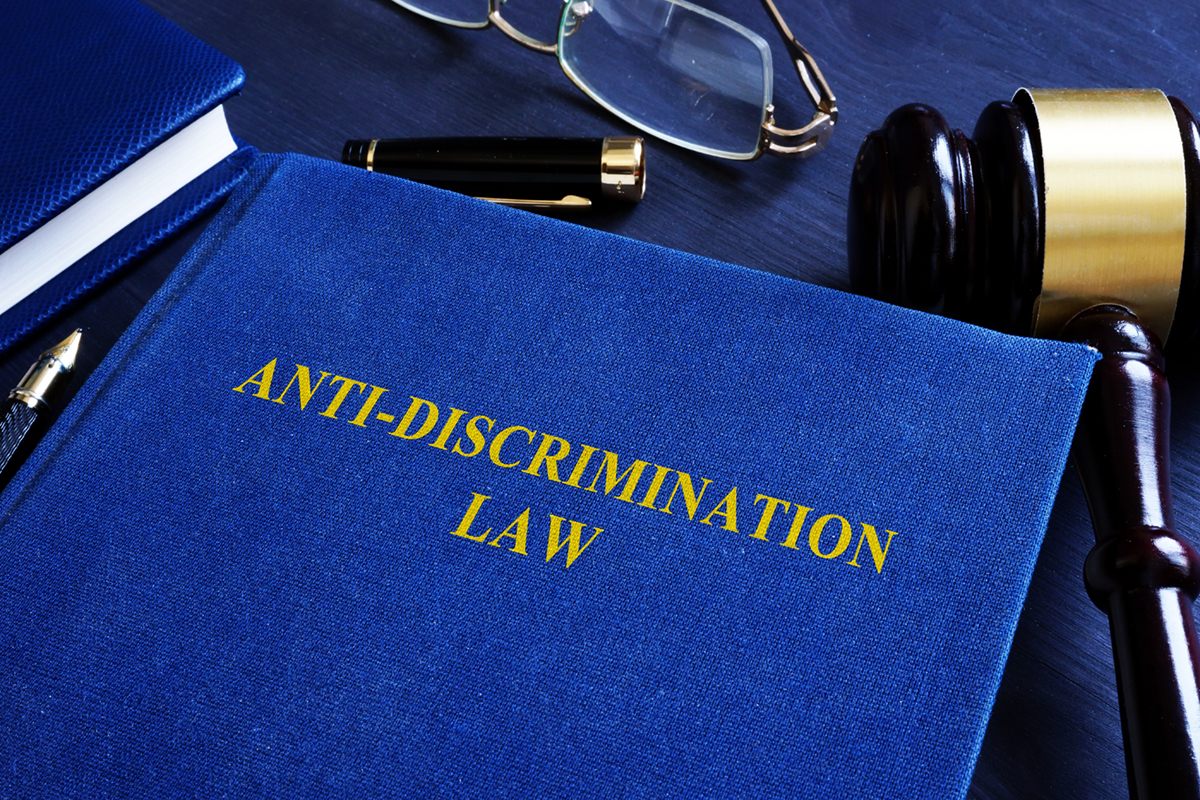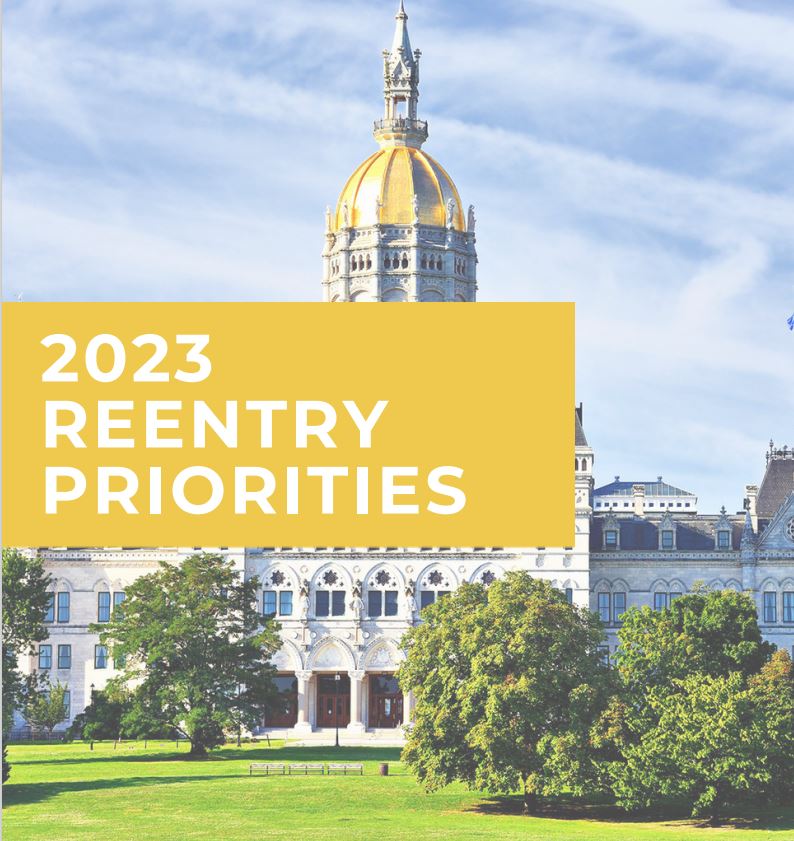CPA Advocacy Initiatives
As a front-line human services provider for justice-involved people in Connecticut, we approach advocacy with a sense of compassion and urgency. We know the struggles our participants face, and we help to remove those barriers, both short-term and long-term.
Our advocacy is rooted in our commitment to ensuring participants have the right to an adequate standard of living including housing, clothing and food, the right to physical and mental health services, and the right to work.
Executive Director Beth Hines is frequently called upon by advocacy organizations and state legislators to provide testimony in support of a wide range of issues affecting the quality of life of those who are currently or formerly incarcerated.
We also know how powerful it is when individuals with lived experience share their story at public hearings, and we work with advocacy organizations like the American Civil Liberties Union (ACLU) Smart Justice Campaign and Full Citizens Coalition to prepare participants to testify.
2023 Advocacy Priorities:

1. Anti-Discrimination in Housing: a place to live is fundamental to people’s ability to return to the community. CPA is working with the American Civil Liberties Union (ACLU) and the Connecticut Coalition to End Homelessness (CCEH) to stop blanket housing denials for people with a criminal record and encourage landlords to assess each applicant on an individual basis.
2. State Identification Accessibility: CPA supports H.B. 5333 (2023), and Department of Correction issued identification documents so that individuals are provided a State ID and assistance with costs when they are discharged from prison. Examples include driver’s license, birth certificate, or a social security card.
3. Juvenile Justice: Protecting young children from unnecessary trauma associated with the criminal justice system is a vital issue to CPA. We support H.B. 5456 to raise the minimum age of arrest for children. Also, in collaboration with the Connecticut Justice Alliance we are firmly against the use of chemical agents, including pepper spray, on youth in confinement.
CPA Also Supports Upholding:
- Protecting Gains from Clean Slate (began in Jan. ‘23 with erasure of 40k+ cannabis convictions).
- Expanding the funding of Community Health Worker Services in the Transitions Clinics.
- The Protect Act (minimizing solitary confinement and restraints). (S.B. 459)
removing barriers to Employment

Clean Slate
In Connecticut and across the country, minor sentences become life sentences that can block the pathway to employment for returning citizens. Many employers hesitate to hire, or laws prevent them from hiring individuals who have a record.
As a result, the consequences of a criminal record last long after men and women have served their sentences, impacting over 5,000 Connecticut residents released from prison each year.
Clean Slate is one solution. The legislation provides for the automatic erasure of criminal records for certain convictions after a set period of time for men and women who remain free of the criminal justice system during that time period. In addition to eliminating barriers for people formerly incarcerated, Clean Slate will also help boost the economy, reducing unemployment and increasing economic activity in the state.
Status: Passed By The Connecticut Legislature In 2021
Anti-Discrimination in Employment
According to the American Civil Liberties Union (ACLU), there are over 500 legal and policy barriers in Connecticut with collateral consequences associated with having a criminal record, many of which concern barriers to employment. These barriers disproportionately impact Black and Brown people, furthering the systemic racial inequity and injustice that exists in our state. Justice-impacted men and women should not have to rely on pardons, which can be obtained only through a lengthy, costly, and arbitrary process, to get hired for a job. It is time to put an end to discriminatory hiring practices.
Community Partners In Action supports anti-discrimination legislation that would expand the public sector protections for people with a criminal record to the private sector and modify the existing individualized assessment process for potential employees.
Status: Proposed To The Connecticut Legislature In 2021

Short-Term and Permanent Housing
Reentry Emergency Housing Assistance
In 2020, the Connecticut Coalition to End Homelessness and Connecticut Department of Correction (DOC) established the Reentry Housing Assistance Program to ensure that every person preparing to leave prison has stable housing upon release. This program was created in response to the COVID-19 health crisis, which shut down or limited temporary housing options when people were released from prison. The program was instrumental in helping to close the emergency housing gap in the state. CPA had great success, assisting over 100 people through the program. Due to funding limitations, the program ended in Spring 2021.
Community Partners in Action supports legislation that would codify this program into law and allocate funds to support it. These additional resources would also enable the Department Of Correction to better connect with and support women, whose reentry needs are often overlooked.
Status: In Development
Anti-discrimination In Housing
All across Connecticut, people newly released from prison are often forced to live in shelters because landlords reject them due to their criminal records. In these cases, landlords make judgments about the individual based on convictions that have no relationship to their reliability as a tenant and in many cases, the infraction record may be several decades old.
An Act Concerning Consideration of Criminal Convictions of a Prospective Tenant seeks to change this discrimination. The policy states that there should be no blanket denials made on the basis of a criminal record and no questions about criminal convictions in any housing applications. Landlords can, however, conduct criminal background screenings within a certain time period, and consider a denial only if the felony or misdemeanor, if repeated, would adversely affect the health, safety or welfare of other tenants.
Status: Proposed For The 2022 Legislative Agenda
Voting Rights
Community Partners In Action
supported two pieces of legislation that eliminated these barriers.
Proposed by the Sentencing Commission
Legislation was written to restore voting rights for everyone except men and women who have been sentenced to life without parole. This new legislation also requires that the Department Of Correction provide every incarcerated individual with a registration form, absentee ballot application, and the necessary certification to vote within fourteen days of their arrival at a Connecticut correctional facility
Status: Voting Restored For People On Parole, Passed By The Connecticut Legislature In 2021
Restoring voting rights for all individuals reentering the community
Legislation we support focuses on restoring voting rights for all individuals reentering the community, taking effect immediately upon release.
CPA views the disenfranchisement of incarcerated people as a racial justice issue, disproportionately impacting Black and Brown people’s right to vote. We are excited to see Connecticut following our fellow New England states, Maine and Vermont, putting an end to the racist and pointless practice of prohibiting voting while incarcerated.
Status: Voting Restored For People On Parole, Passed By The Connecticut Legislature In 2021

